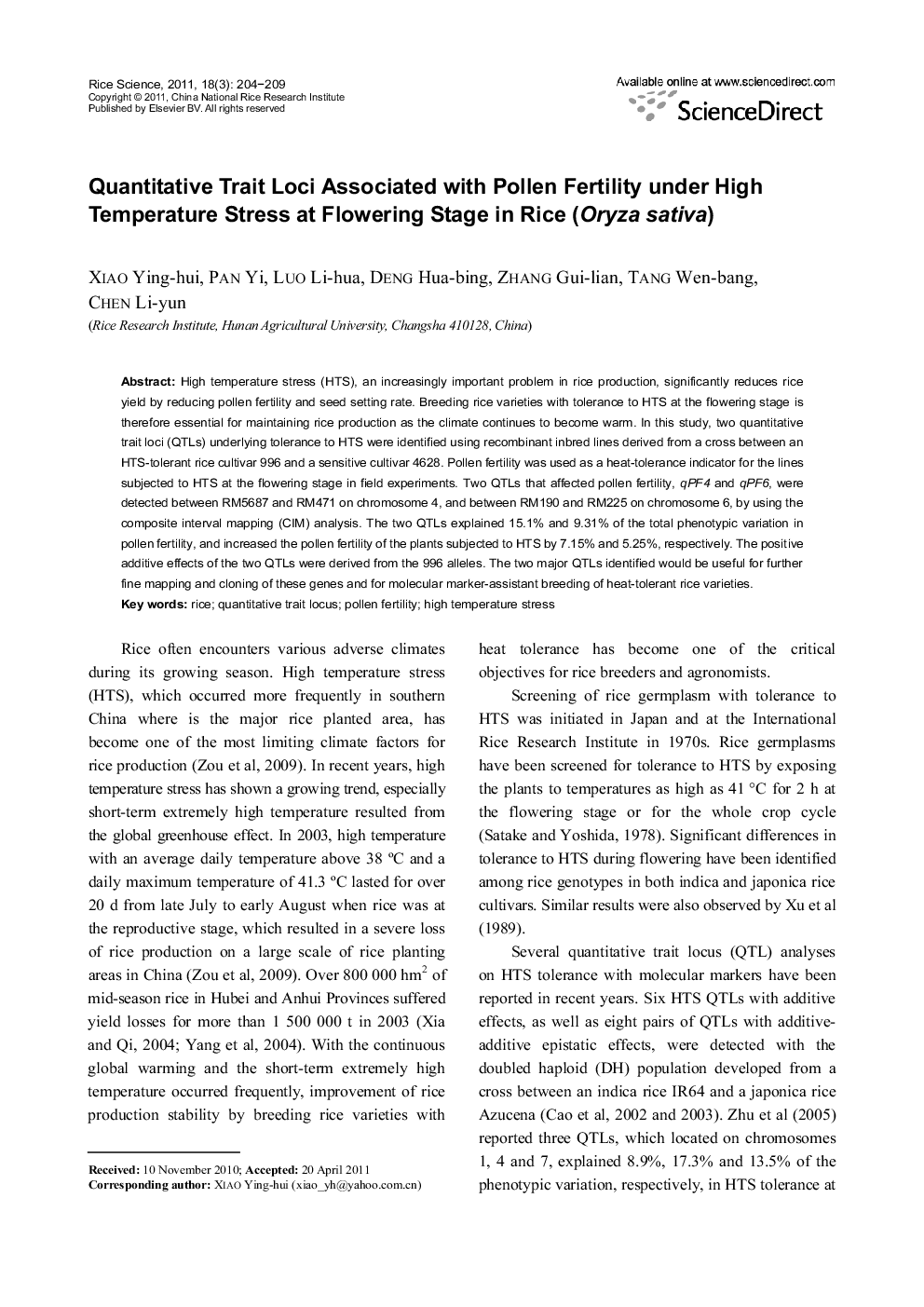| Article ID | Journal | Published Year | Pages | File Type |
|---|---|---|---|---|
| 4502005 | Rice Science | 2011 | 6 Pages |
High temperature stress (HTS), an increasingly important problem in rice production, significantly reduces rice yield by reducing pollen fertility and seed setting rate. Breeding rice varieties with tolerance to HTS at the flowering stage is therefore essential for maintaining rice production as the climate continues to become warm. In this study, two quantitative trait loci (QTLs) underlying tolerance to HTS were identified using recombinant inbred lines derived from a cross between an HTS-tolerant rice cultivar 996 and a sensitive cultivar 4628. Pollen fertility was used as a heat-tolerance indicator for the lines subjected to HTS at the flowering stage in field experiments. Two QTLs that affected pollen fertility, qPF4 and qPF6, were detected between RM5687 and RM471 on chromosome 4, and between RM190 and RM225 on chromosome 6, by using the composite interval mapping (CIM) analysis. The two QTLs explained 15.1% and 9.31% of the total phenotypic variation in pollen fertility, and increased the pollen fertility of the plants subjected to HTS by 7.15% and 5.25%, respectively. The positive additive effects of the two QTLs were derived from the 996 alleles. The two major QTLs identified would be useful for further fine mapping and cloning of these genes and for molecular marker-assistant breeding of heat-tolerant rice varieties.
